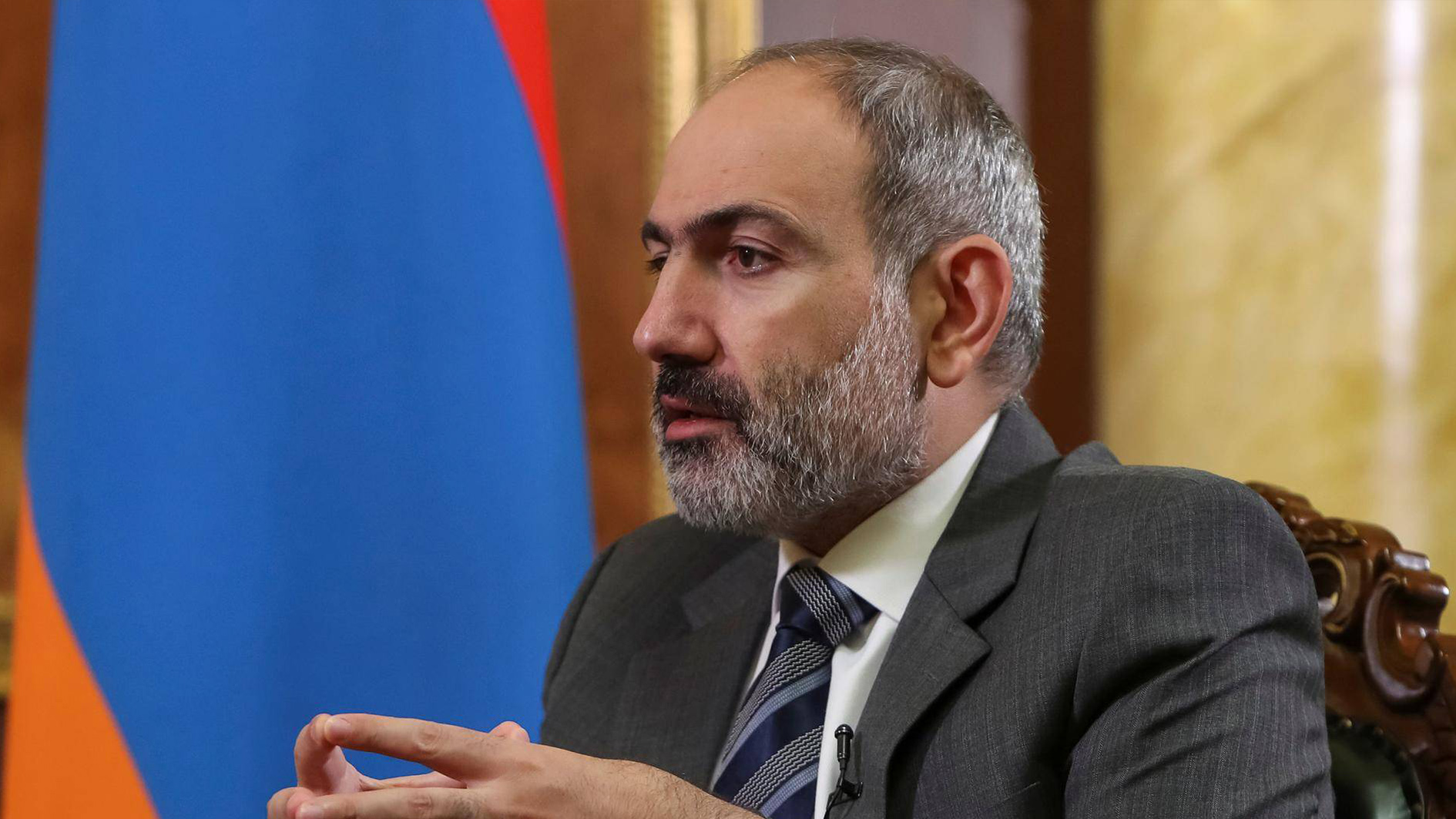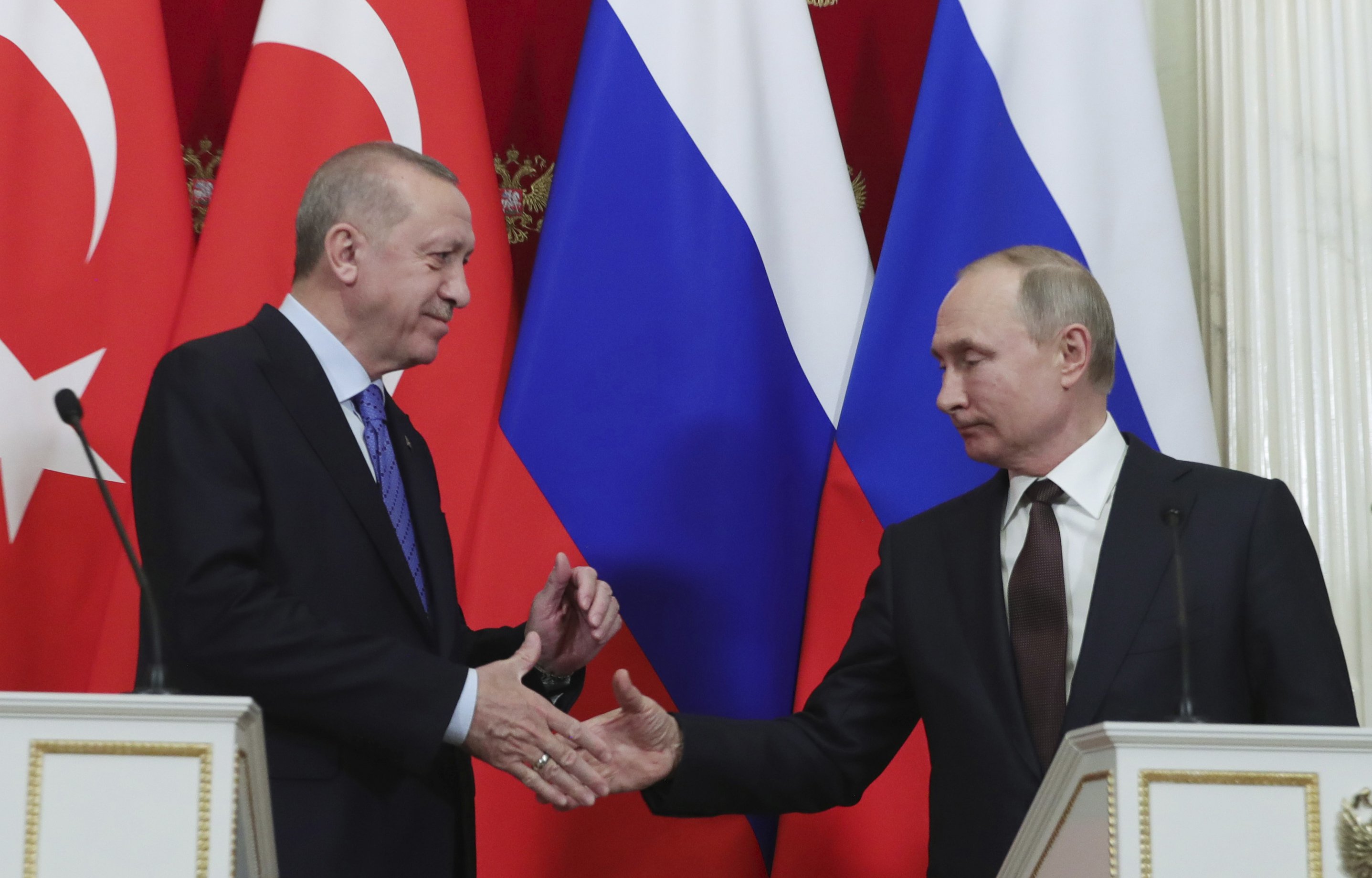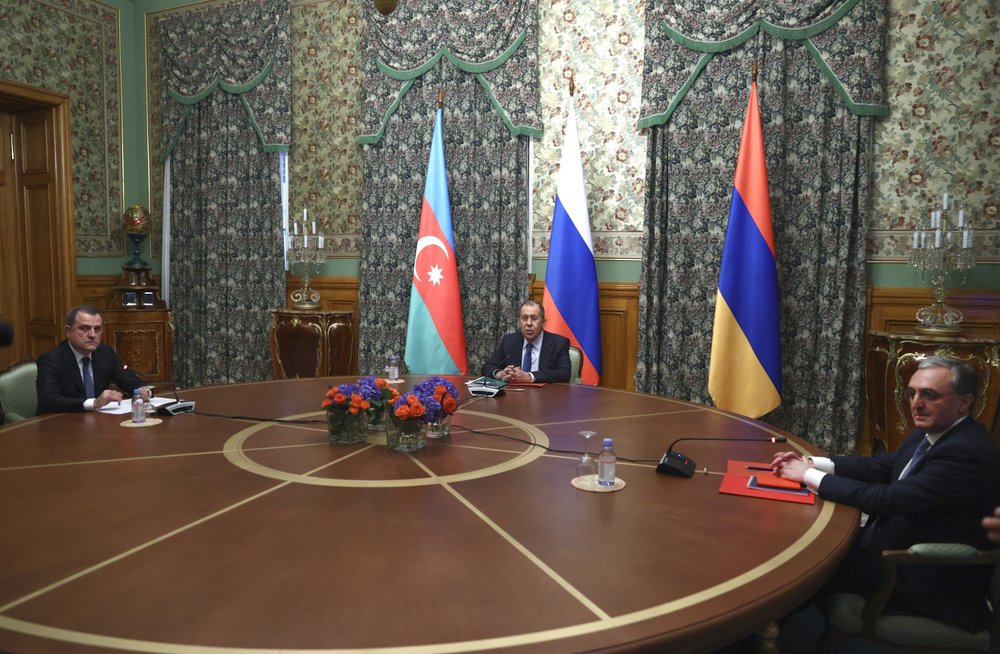01:08

The conflict between Armenia and Azerbaijan escalated Wednesday, as both sides exchanged accusations and claims of new attacks over the separatist territory of Nagorno-Karabakh, where heavy fighting is continuing for a third week despite a Russia-brokered cease-fire deal.
Russian President Vladimir Putin spoke by phone with his Turkish counterpart Recep Tayyip Erdogan, emphasizing the need to respect the truce that was violated immediately after taking effect Saturday. Putin also voiced concern about the involvement in the conflict by militants from the Middle East – a reference to Turkey deploying Syrian fighters to combat Armenian forces in Nagorno-Karabakh.
The two leaders "stressed the urgent need for joint efforts to end the bloodshed as soon as possible and move to a peaceful settlement of the Nagorno-Karabakh problem," according to a Kremlin readout of the call. Their first since fighting erupted late last month.

File: Russian President Vladimir Putin (R) and Turkish President Recep Tayyip Erdogan shake hands after a joint news conference in the Kremlin, Moscow, Russia, March 5, 2020. Russia, Turkey agreed on strict adherence to Nagorno-Karabakh ceasefire. /AP
File: Russian President Vladimir Putin (R) and Turkish President Recep Tayyip Erdogan shake hands after a joint news conference in the Kremlin, Moscow, Russia, March 5, 2020. Russia, Turkey agreed on strict adherence to Nagorno-Karabakh ceasefire. /AP
In a sign that the conflict was widening, Azerbaijan's military said it destroyed an Armenian missile system on the territory of Armenia that was positioned to target civilian areas. Armenia's Defense Ministry responded by stating that it reserves the right to target Azerbaijani military objects and troop movements.
So far, Armenia and Azerbaijan have denied targeting each other's territory in the fighting over Nagorno-Karabakh, although each of the parties often contested the denials.
An expansion of hostilities could trigger a dangerous escalation of the decades-old conflict over Nagorno-Karabakh, which is inside Azerbaijan but has been under the control of ethnic Armenian forces backed by Armenia since the end of a separatist war in 1994. The Armenian forces have also controlled significant chunks of Azerbaijani territory outside the separatist region.

Russian Foreign Minister Sergey Lavrov (C), Armenian Foreign Minister Zohrab Mnatsakanyan (R), and Azerbaijani Foreign Minister Jeyhun Bayramov at a meeting in Moscow, Russia, October 9, 2020. /AP
Russian Foreign Minister Sergey Lavrov (C), Armenian Foreign Minister Zohrab Mnatsakanyan (R), and Azerbaijani Foreign Minister Jeyhun Bayramov at a meeting in Moscow, Russia, October 9, 2020. /AP
The mutual accusations and threats raised concern about the safety of a strategic pipeline that carries Azerbaijan's Caspian Sea crude oil to Turkey and on to Western markets.
Azerbaijani President Ilham Aliyev threatened "very heavy response," should Armenia "carry out its plans to destroy" oil and gas pipelines in Azerbaijan.
The failure of the truce that was supposed to begin Saturday reflects the uncompromising positions of the two South Caucasus nations that have stymied decades of diplomatic efforts. The escalation of fighting raises the specter of a wider conflict that could draw in Russia and Turkey and threaten Caspian Sea energy exports.

A house after shelling artillery in Ganja, Azerbaijan. /AP
A house after shelling artillery in Ganja, Azerbaijan. /AP
Azerbaijan and Turkey have accepted Russia's mediation and grudgingly agreed to a truce, but they have made it clear that see the cease-fire as temporary until Armenia agrees to pull back its forces from Nagorno-Karabakh.
Turkey reiterated its support for Azerbaijan. Unlike previous outbursts of hostilities over Nagorno-Karabakh, NATO-member Turkey, which has close ethnic, cultural and historic bonds with Azerbaijan, vowed to help Azerbaijan reclaim its territory.
Armenian officials say Turkey is directly involved in the conflict and is sending Syrian mercenaries to fight on Azerbaijan's side. Turkey has denied deploying combatants to the region, but a Syrian war monitor and Syria-based opposition activists have confirmed that Turkey has sent hundreds of Syrian opposition fighters to fight in Nagorno-Karabakh.
Co-chaired by France, Russia and the United States, the OSCE Minsk Group has worked to find a resolution to the decades-long conflict, and the Kremlin said Wednesday that Putin and Erdogan hope Turkey will play a role towards de-escalation as a permanent member.
Ongoing shelling by both sides has left a ceasefire agreed last week in Moscow hanging in the balance, but "both sides confirmed the importance of observing the humanitarian truce," the Kremlin said.
(With inputs from agencies)